Here is a hardball question for the Caribbean:
Can we all just get along? – Rodney King 1993; on the occasion of L.A. Riots after the acquittal of police officers who beat him.
Here’s a softball question:
Can we welcome 3 million tourists for just this one weekend?
This is the cultural and economic reality taking place this weekend. New York City (NYC) is commemorating the 50th Anniversary of the Stonewall Riots – today is the exact date. Yes, NYC went from oppression and intolerance to acceptance and celebration; even now enjoying 3 million additional visitors for this commemoration.
Title: Stonewall Riots
The Stonewall riots (also referred to as the Stonewall uprising or the Stonewall rebellion) were a series of demonstrations by members of the gay (LGBT) community against an excessive and violent police raid that began in the early morning hours of June 28, 1969, at the Stonewall Inn in the Greenwich Village neighborhood of Manhattan, New York City. They are widely considered to constitute the most important event leading to the gay liberation movement[1][2][3][4] and the modern fight for LGBT rights in the United States.[5][6]
Gay Americans in the 1950s and 1960s faced an anti-gay legal system. Early homophile groups in the U.S. sought to prove that gay people could be assimilated into society, and they favored non-confrontational education for homosexuals and heterosexuals alike. The last years of the 1960s, however, were very contentious, as many social/political movements were active, including the civil rights movement, the counterculture of the 1960s, and the anti-Vietnam War movement. These influences, along with the liberal environment of Greenwich Village, served as catalysts for the Stonewall riots.
Very few establishments welcomed openly gay people in the 1950s and 1960s. Those that did were often bars, although bar owners and managers were rarely gay. At the time, the Stonewall Inn was owned by the Mafia.[8][9][10] It catered to an assortment of patrons and was known to be popular among the poorest and most marginalized people in the gay community: drag queens, transgender people, effeminate young men, butch lesbians, male prostitutes, and homeless youth. Police raids on gay bars were routine in the 1960s, but officers quickly lost control of the situation at the Stonewall Inn. Tensions between New York City police and gay residents of Greenwich Village erupted into more protests the next evening, and again several nights later. Within weeks, Village residents quickly organized into activist groups to concentrate efforts on establishing places for gays and lesbians to be open about their sexual orientation without fear of being arrested.
After the Stonewall riots, gays and lesbians in New York City faced gender, race, class, and generational obstacles to becoming a cohesive community. Within six months, two gay activist organizations were formed in New York, concentrating on confrontational tactics, and three newspapers were established to promote rights for gays and lesbians. Within a few years, gay rights organizations were founded across the U.S. and the world. On June 28, 1970, the first gay pride marches took place in New York, Los Angeles, San Francisco,[11] and Chicago commemorating the anniversary of the riots. Similar marches were organized in other cities. Today, LGBT Pride events are held annually throughout the world toward the end of June to mark the Stonewall riots.[12] The Stonewall National Monument was established at the site in 2016.[13]
Source: Retrieved June 28, 2019; see the full encyclopedic reference at: https://en.wikipedia.org/wiki/Stonewall_riots
So, they learned “to get along”.
And now they are laughing “all the way to the bank” …
VIDEO – Pride, passion, progress: Inside Stonewall’s impact 50 years later – https://www.today.com/video/pride-passion-progress-inside-stonewall-s-impact-50-years-later-62866501801
Posted June 28, 2019 – As New York City preps to celebrate World Pride this weekend, NBC’s Joe Fryer goes inside The Stonewall Inn, the historic landmark that sparked the modern movement for LGBTQ rights. He hears from those who took part in the uprising 50 years ago.
There is a lesson here for us in the Caribbean.
We have a long way to go for some of our communities in the Caribbean to be a more tolerant society. But we must walk-trot-run this journey; we must reflect a more pluralistic democracy; we must learn to “live and let live”.
And if we want to double-down on tourism – we do – then we cannot invite people to enjoy our hospitality but then condemn them – in words and actions – for their lifestyle choices.
This – 50th Anniversary of Stonewall – is not our first close-examination of the toleration of the Caribbean or visiting LGBT community. In fact, now is a good time to Encore the blog-commentary from July 2, 2015 lamenting the harsh treatment in Jamaica for their LGBT citizens.
See a related news-commentary here:
Title: Stonewall 50: Don’t Forget the Black & Brown LGBTQ Struggle
Sub-title: Black queer and transgender people have always had to remind the rest of the community of [their] prominence —despite the fact that the movement was co-led by [them] since the beginning.
Source: https://www.thedailybeast.com/stonewall-50-dont-forget-the-black-and-brown-lgbtq-struggle
The world have adopted a more tolerant stance – so must we in the Caribbean. See that Encore here as follows:
————-
Go Lean Commentary – Buggery in Jamaica – ‘Say It Ain’t So’!
This commentary has asserted that the Caribbean region can be a better society than the United States of America. Yes, we can!
But to even start the discussion, we must first:
Live and let live!
 The topic of intolerance has been acute in the news as of late. We have the extreme example of the Islamic State in Iraq and Syria (ISIS) beheading non-Muslims because… well, just because. And the example of the US legalizing Gay Marriage may be considered too tolerant for some people’s good taste.
The topic of intolerance has been acute in the news as of late. We have the extreme example of the Islamic State in Iraq and Syria (ISIS) beheading non-Muslims because… well, just because. And the example of the US legalizing Gay Marriage may be considered too tolerant for some people’s good taste.
Where does the Caribbean fit in this discussion?
If ISIS is one end of a scale and Gay Marriage in America is another end, then one Caribbean member-state, Jamaica, would be closer to …
ISIS!
Yes, it is that bad. Say it ain’t so.
See Appendix-VIDEO’s below …
While this commentary directly targets Jamaica, the majority of the countries and overseas territories of the former British Empire, still criminalize sexual acts between consenting adults of the same sex and other forms of sexual orientation, gender identity and expression. This has been described as being the result of “the major historical influence” or legacy of the British Empire. In most cases, it was former colonial administrators that established anti-gay legislation or sodomy acts during the 19th century; see Appendix below. The majority of countries then retained these laws following independence.[1][2].
There is an effort now to transform society in Jamaica (and other countries) in this regards. There are Gay Pride Activities being planned for this Summer of 2015. See the relevant news article here:
Title: J-FLAG Is Planning Gay Pride Activities, But No Parade For August – Exec
Source: Jamaica Gleaner Daily Newspaper Online Site; posted June 30, 2015; retrieved from: http://jamaica-gleaner.com/article/news/20150630/j-flag-planning-gay-pride-activities-no-parade-august-exec
Local gay lobby, J-FLAG, is refuting reports that it will host a road parade in August when the group plans to have a series of gay pride activities.
Social media has been abuzz since yesterday following a report that the group would host a parade, similar to what is done in the United States and other countries.
However, executive director of J-FLAG, Dane Lewis, says the report is wrong, adding that Jamaica is not ready for such an event.
Meanwhile, he says the group is planning a week-long series of activities starting on Emancipation Day, August 1, to mark growing tolerance for members of the lesbian, gay, bisexual, and transgender (LGBT) community.
Some years ago, an attempt to host a gay parade was thwarted after anti-gay supporters reportedly planned attacks against marchers.
Jamaica is accused of being one of the most homophobic places on earth.
Last week, the US government released a report noting that anti-gay laws and the dancehall culture are responsible for perpetuating homophobia in Jamaica.
Additional reference sources: http://jflag.org/VIDEO: Executive Director of JFLAG, Dane Lewis: “We Are Jamaicans” – https://youtu.be/sJ-17R5DCoI
Published on Jan 17, 2013 – “We Are Jamaicans” is funded with the kind support of the Caribbean Vulnerable Communities Coalition (CVC) through its Global Fund Vulnerablised Project.
Building a diverse society is not easy. The book Go Lean … Caribbean describes the challenge as heavy-lifting. Though the US had failed at this challenge, it proudly boasts that it got better with every generation. The Caribbean on the other hand, leaves much to be desired in terms of the willingness to change and keep pace with progressive societies. (Now the US, Canada, Ireland and other countries have legalized Gay Marriage).
In a previous blog-commentaries, this defect – Homosexual Intolerance – was listed among the blatant human rights abuses in the region.
This is an important consideration for the planners of Caribbean empowerment. The Caribbean, a region where unfortunately, we have NOT … tried to be as tolerant as may be required, expected and just plain moral.
We must do better!
The book Go Lean … Caribbean asserts that Caribbean society’s prosperity has been hindered with a high abandonment rate – reported at 70% for educated classes region-wide, but an even higher 85% in Jamaica. The primary mission of the Go Lean book is to “battle” against the “push-and-pull” factors that draw so many of our Caribbean citizens away from their homelands to go to more progressive countries.
The Go Lean book campaigns to lower the “push” factors!
The purpose of the Go Lean book is to fix the Caribbean; to be better. The Go Lean book serves as a roadmap for the introduction and implementation of the technocratic Caribbean Union Trade Federation (CU) to pursue the quest to elevate the Caribbean region through empowerments in economics, security and governance. It is the assertion that Caribbean citizens can stay home and effect change in their homelands more effectively than going to some foreign countries to find opportunities for life, liberty and the pursuit of happiness. The book therefore asserts that the region can turn-around from failing assessments by applying best-practices, and forging new societal institutions to impact the Greater Good for all the Caribbean. This point was pronounced in the opening Declaration of Interdependence (Pages 10 – 14) with these acknowledgements and statements:
xi. Whereas all men are entitled to the benefits of good governance in a free society, “new guards” must be enacted to dissuade the emergence of incompetence, corruption, nepotism and cronyism at the peril of the people’s best interest. The Federation must guarantee the executions of a social contract between government and the governed.
xii. Whereas the legacy in recent times in individual states may be that of ineffectual governance with no redress to higher authority, the accedence of this Federation will ensure accountability and escalation of the human and civil rights of the people for good governance, justice assurances, due process and the rule of law. As such, any threats of a “failed state” status for any member state must enact emergency measures on behalf of the Federation to protect the human, civil and property rights of the citizens, residents, allies, trading partners, and visitors of the affected member state and the Federation as a whole.
xxxiii. Whereas lessons can be learned and applied from the study of the recent history of other societies, the Federation must formalize statutes and organizational dimensions to avoid the pitfalls of communities like … Egypt. On the other hand, the Federation must also implement the good examples learned from developments/ communities like New York City, … Canada, … and tenants of the US Constitution.
The CU/Go Lean vision to elevate Caribbean society must also consider the issue of image. There is the need for a sentinel role for Caribbean image, as there are a lot of times that Caribbean life and people are denigrated in the media: news, film, TV, books, magazines. It’s unfortunate when we are guilty of scathing allegations. The Go Lean roadmap calls for the CU to assume a role of protecting and projecting positive Caribbean images. The plan is to use cutting edge delivery of best practices; the applicable CU agencies will employ strategies, tactics and implementations to impact the Go Lean prime directives; identified with the following 3 statements:
- Optimization of the economic engines in order to grow the regional economy to $800 Billion & create 2.2 million new jobs.
- Establishment of a security apparatus to protect the resultant economic engines and mitigate challenges/threats to public safety for all citizens… LGBT or straight.
- Improvement of Caribbean governance to support these engines.
Jamaica has a failing economy.
Jamaica’s primary economic driver is tourism. So …
Is the Caribbean ready for this economic activity? A bridge too far, too soon?
 Jamaica has a long way to go; the country has been described by some Human Rights groups as the most homophobic place on Earth because of the high level of violent crime directed at LGBT people; (Padgett, Tim: “The Most Homophobic Place on Earth?”. Time Magazine posted 12 April 2006). The United States Department of State said that in 2012, “homophobia was [unacceptably] widespread in the country” (2012 Country Reports on Human Rights Practices: Jamaica, Bureau of Democracy, Human Rights and Labor, U.S. Department of State, pages 20-22). As depicted in the VIDEO below, even President Obama indicted the island on a recent official State Visit.
Jamaica has a long way to go; the country has been described by some Human Rights groups as the most homophobic place on Earth because of the high level of violent crime directed at LGBT people; (Padgett, Tim: “The Most Homophobic Place on Earth?”. Time Magazine posted 12 April 2006). The United States Department of State said that in 2012, “homophobia was [unacceptably] widespread in the country” (2012 Country Reports on Human Rights Practices: Jamaica, Bureau of Democracy, Human Rights and Labor, U.S. Department of State, pages 20-22). As depicted in the VIDEO below, even President Obama indicted the island on a recent official State Visit.
Why is this country’s homophobia so acute compared to other countries? For one, they have held on emphatically to the British Laws on Buggery – see Appendix below – from their colonial days; even though the host country of England has already abandoned the laws (in 1967).
Jamaica is partying like it’s 1899!
This is therefore a matter of community ethos. The Go Lean book defines community ethos as the fundamental character or spirit of a culture; the underlying sentiment that informs the beliefs, customs, or practices of a group or society; the dominant assumptions of a people or period. This tropical paradise of Jamaica, as defined in the foregoing news article and VIDEO continues to spur bad attitudes, bad ideas, bad speech and bad actions towards the LGBT community. This is unbecoming of a progressive society in 2015.
Alas, this is a crisis…for victims and their loved ones. The Go Lean book posits that this crisis can be averted, that the crisis is a “terrible thing to waste”. The Go Lean roadmap seeks to optimize the eco-systems for Jamaica and the entire Caribbean. The book stresses new community ethos, strategies, tactics, implementations and advocacies necessary to transform and turn-around the eco-systems of the regional society. These points are detailed in the book as follows:
| Who We Are – SFE Foundation – Comprised of Caribbean Diaspora | Page 8 |
| Community Ethos – Economic Principles – Economic Systems Influence Individual Choices | Page 21 |
| Community Ethos – Economic Principles – Consequences of Choices Lie in the Future | Page 21 |
| Community Ethos – Governing Principles – Lean Operations | Page 24 |
| Community Ethos – Ways to Impact the Future | Page 26 |
| Community Ethos – Ways to Promote Happiness | Page 36 |
| Community Ethos – Ways to Impact the Greater Good | Page 37 |
| Strategy – Vision – Confederate all 30 member-states into a Single Market | Page 45 |
| Strategy – Mission – Build and foster local economic engines | Page 45 |
| Strategy – Mission – Repatriate the Diaspora, even Minorities like those of the LGBT community | Page 46 |
| Tactical – Ways to Foster a Technocracy | Page 64 |
| Tactical – Growing the Economy to $800 Billion GDP | Page 68 |
| Tactical – Separation-of-Powers – CU Federal Government versus Member-State Governance | Page 71 |
| Anatomy of Advocacies – Examples of Individuals Who Made Impact | Page 122 |
| Planning – 10 Big Ideas – Homeland Security Pact | Page 127 |
| Planning – Ways to Make the Caribbean Better | Page 131 |
| Planning – Ways to Improve Failed-State Indices – Minority and Human Rights | Page 134 |
| Planning – Lessons Learned from US Constitution – Equal Protection for all Minorities | Page 145 |
| Advocacy – Ways to Grow the Economy | Page 151 |
| Advocacy – Ways to Create Jobs | Page 152 |
| Advocacy – Ways to Improve Governance – For All Citizens | Page 168 |
| Advocacy – Ways to Better Manage the Social Contract – Security against “Bad Actors” | Page 170 |
| Advocacy – Ways to Impact Justice – Internal Affairs Reporting Line | Page 177 |
| Advocacy – Ways to Remediate and Mitigate Crime – Hate Crime Qualifiers | Page 178 |
| Advocacy – Ways to Improve Homeland Security | Page 180 |
| Advocacy – Ways to Mitigate Terrorism – Consider Bullying as Junior Terrorism | Page 181 |
| Advocacy – Ways to Impact Youth – Collaborating with Foundations | Page 218 |
| Advocacy – Ways to Re-boot Jamaica | Page 239 |
| Advocacy – Ways to Impact British Territories | Page 245 |
Looking at the disposition of the island nation of Jamaica’s, we see that its societal engines are failing.
Could the investment in the diversity of its people be at the root of the problem?
The failing indices and metrics of Jamaica have been considered in previous blog/commentaries; see sample here:
| https://goleancaribbean.com/blog/?p=4840 | Jamaican Poll: ‘Bring back the British!’ |
| https://goleancaribbean.com/blog/?p=3694 | Looking for a job in Jamaica, go to Canada |
| https://goleancaribbean.com/blog/?p=2830 | Jamaica’s Public Pension Under-funded |
| https://goleancaribbean.com/blog/?p=392 | Jamaica to receive World Bank funds to help in crime fight |
| https://goleancaribbean.com/blog/?p=313 | What’s Holding Back Jamaica’s Reforms |
The Go Lean roadmap seeks to empower and elevate Caribbean societal engines to make Jamaica, and the rest of the Caribbean, better places to live, work and play … for all citizens, including the LGBT communities.
Most of the Jamaican Diaspora that has abandoned the island now lives in the US, Canada or the UK. Their new home-communities are more tolerant societies of their LGBT neighbors.
Perhaps, there is some correlation.
This commentary is not urging the abandonment of the Judeo-Christian moral code; Jesus Christ instructed to “let them be” at Luke 22:51 (The Message Translation). Rather this commentary urges tolerance and moderation: Live and let live!
Fight the hate!
Yes, we can … do this. Yes, we must do this. 🙂
Download the book Go Lean … Caribbean – now!
———–
Appendix VIDEO: US President Obama’s LGBT comments at Youth Leaders Town Hall – https://youtu.be/636mgw1THpc?t=5m1s
Published on Apr 9, 2015 – President Obama delivers remarks and answers questions at a town hall with Young Leaders of the Americas at University of the West Indies in Kingston, Jamaica. April 9, 2015.
———–
Appendix VIDEO: Gay rights in Jamaica – https://youtu.be/_nSgMGoBAmU
———–
Appendix – Encyclopedic Reference: Buggery in English Common Law
The British English term buggery is very close in meaning to the term sodomy, often used interchangeably in law and popular speech. It may also be a specific common law offenceencompassing both sodomy and bestiality.
In English law “buggery” was first used in the Buggery Act 1533, while Section 61 of the Offences against the Person Act 1861, entitled “Sodomy and Bestiality”, defined punishments for “the abominable Crime of Buggery, committed either with Mankind or with any Animal”. The definition of “buggery” was not specified in these or any statute, but rather established by judicial precedent.[1] Over the years the courts have defined buggery as including either [of these]:
- anal intercourse or oral intercourse by a man with a man or woman[2] or
- vaginal intercourse by either a man or a woman with an animal,[3]
But [no other] form of “unnatural intercourse”[4] [was defined], the implication being that anal sex with an animal would not constitute buggery. Such a case has not, to date, come before the courts of a common law jurisdiction in any reported decision. However, it seems highly improbable that a person would be exculpated of a crime associated with sex with animals only by reason of the fact that penetration involved the anus rather than the vagina. In the 1817 case of Rex v. Jacobs, the Crown Court ruled that oral intercourse, even with an underage and/or non-consenting person, did not constitute buggery or sodomy.[4]
At common law consent was not a defence[5] nor was the fact that the parties were married.[6] In the UK, the punishment for buggery was reduced from hanging to life imprisonment by the Offences against the Person Act 1861. As with the crime of rape, buggery required that penetration must have occurred, but ejaculation is not necessary.[7]
Most common law jurisdictions have now modified the law to permit anal sex between consenting adults.[8] Hong Kong did so retroactively in 1990, barring prosecution for “crimes against nature” committed before the Crimes (Amendment) Ordinance 1990 entered into force except those that would still have constituted a crime if they had been done thereafter. In England and Wales, homosexual buggery was decriminalised in 1967 with an age of consent at 21 years, whereas all heterosexual intercourse had an age of consent at 16 years. The Sexual Offences Act 2003 did not fully remove buggery as a concept in United Kingdom law, as the previous law is retained for complainants (consensual or “pseudo-consensual”) under the age of 16, or 18 with regards to an adult perceived to be in a “position of trust”. As the law stands, buggery is still charged, exclusively regarding “pseudo-consensual” anal intercourse with those under 16/18, because children cannot legally consent to buggery although they may appear to do so. Rape is charged when the penetration is clearly not consensual. Buggery with an animal is still unlawful under Section 69 of the Sexual Offences Act 2003.
In the Republic of Ireland, the Criminal Law (Sexual Offences) Act 1993 abolished the offence of “buggery between persons”.[9] For some years prior to 1993, criminal prosecution had not been made for buggery between consenting adults. The 1993 Act created an offence of “buggery with a person under the age of 17 years”,[10] penalised similar to statutory rape, which also had 17 years as the age of consent. The Criminal Law (Sexual Offences) Act 2006 replaced this offence with “defilement of a child”, encompassing both “sexual intercourse” and “buggery”.[11] Buggery with an animal is still unlawful under Section 69 of the Sexual Offences Act 2003. In 2012 a man was convicted of this offence for supplying a dog in 2008 to a woman who had intercourse with it and died.[12]
Etymology – The word bugger and buggery are still commonly used in modern English as a mild exclamation. “Buggery” is also synonymous with anal sex.
The word “bugger” was derived, via the French bougre, from Bulgar, that is, “Bulgarian”, meaning the medieval Bulgarian heretical sect of the Bogomils, which spread into Western Europe and was claimed by the established church to be devoted to the practice of sodomy.[13] “Buggery” first appears in English in 1330, though “bugger” in a sexual sense is not recorded until 1555.[14]
(Source: https://en.wikipedia.org/wiki/Buggery)

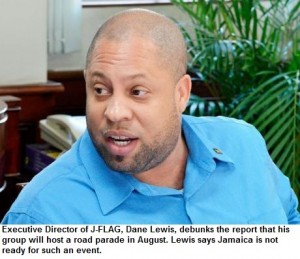


 What we want is simpler policies and practices intended for the Greater Good. (This ethos was defined by Jeremy Bentham, who lived 1748 – 1832, as: “the greatest good to the greatest number of people which is the measure of right and wrong”).
What we want is simpler policies and practices intended for the Greater Good. (This ethos was defined by Jeremy Bentham, who lived 1748 – 1832, as: “the greatest good to the greatest number of people which is the measure of right and wrong”).

 Dr. Elinor Ostrom is in this class of fame and infamy. Regrettably, she passed in 2012, after leaving a legacy for others to benefit from; we are forever grateful for her contributions to the field of Economics and Common Pool Resources. May we all pay more than the usual attention to her productions.
Dr. Elinor Ostrom is in this class of fame and infamy. Regrettably, she passed in 2012, after leaving a legacy for others to benefit from; we are forever grateful for her contributions to the field of Economics and Common Pool Resources. May we all pay more than the usual attention to her productions.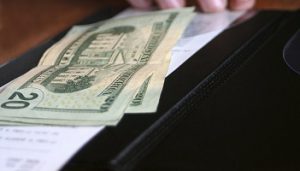 Unlike most places, the Bahamas mandates that restaurants charge 18% gratuity … even for take-out operations. This is extreme, as
Unlike most places, the Bahamas mandates that restaurants charge 18% gratuity … even for take-out operations. This is extreme, as 
 The New Economy has brought forward a “Sharing Eco-System” in which industrial trends like ride-sharing, home-sharing and delivery assignments have emerged. There is now the concept of “ghost” restaurants – delivery services only; see details in the Appendices below.
The New Economy has brought forward a “Sharing Eco-System” in which industrial trends like ride-sharing, home-sharing and delivery assignments have emerged. There is now the concept of “ghost” restaurants – delivery services only; see details in the Appendices below.
 Just ask anyone attempting to quit smoking. Not only are there physiological challenges, but psychological ones as well, to the extent that it can be stated with no uncertainty that “change begins in the head”. In psycho-therapy the approach to forge change for an individual is defined as “starting in the head” (thoughts, visions), penetrating the heart (feelings, motivations) and then finally manifesting in the hands (actions). This same body analogy is what is purported in this book for how the Caribbean is to embrace change – following this systematic flow:
Just ask anyone attempting to quit smoking. Not only are there physiological challenges, but psychological ones as well, to the extent that it can be stated with no uncertainty that “change begins in the head”. In psycho-therapy the approach to forge change for an individual is defined as “starting in the head” (thoughts, visions), penetrating the heart (feelings, motivations) and then finally manifesting in the hands (actions). This same body analogy is what is purported in this book for how the Caribbean is to embrace change – following this systematic flow: If you’re tuned into restaurant trends, you may have heard of ghost restaurants. These new types of foodservice establishments are increasing in popularity as more and more restaurateurs decide to depart from traditional brick-and-mortar establishments and
If you’re tuned into restaurant trends, you may have heard of ghost restaurants. These new types of foodservice establishments are increasing in popularity as more and more restaurateurs decide to depart from traditional brick-and-mortar establishments and 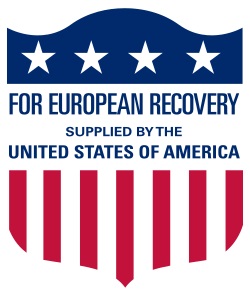
 In September 2017, Hurricane Maria devastated the island of Puerto Rico (PR), “bombing” its infrastructure. The island needed (actually still needs) all the help it could get. PR must reboot! Help came from the US Federal government … eventually. The US President now claims that his administration has given $91 Billion.
In September 2017, Hurricane Maria devastated the island of Puerto Rico (PR), “bombing” its infrastructure. The island needed (actually still needs) all the help it could get. PR must reboot! Help came from the US Federal government … eventually. The US President now claims that his administration has given $91 Billion. The book Go Lean…Caribbean asserts that the Caribbean must first look to the Caribbean to effect the needed change in the region. The idea of someone “
The book Go Lean…Caribbean asserts that the Caribbean must first look to the Caribbean to effect the needed change in the region. The idea of someone “ Oh wait! It’s a mirage. It is past time for PR to realize that its panacea is not the American eco-system. It is time to
Oh wait! It’s a mirage. It is past time for PR to realize that its panacea is not the American eco-system. It is time to 



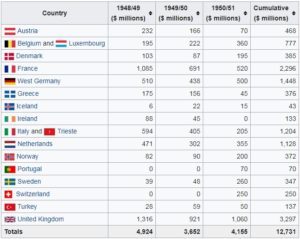

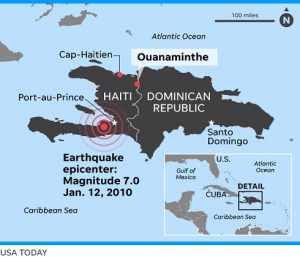

 This is the assertion – and the whole world knows it – Cuba will imminently re-emerge as a ‘Free Market’ economy.
This is the assertion – and the whole world knows it – Cuba will imminently re-emerge as a ‘Free Market’ economy. Change is on the way for Cuba!
Change is on the way for Cuba! While the purpose of the Go Lean roadmap is NOT Cuba alone, we know that we cannot elevate the societal engines for all of the Caribbean while ignoring Cuba. It possesses 26% of the region’s population and a huge portion of the landmass. There is no Caribbean without Cuba.
While the purpose of the Go Lean roadmap is NOT Cuba alone, we know that we cannot elevate the societal engines for all of the Caribbean while ignoring Cuba. It possesses 26% of the region’s population and a huge portion of the landmass. There is no Caribbean without Cuba. Cuba’s 60-year experiment with extreme Socialism is concluding with this Failed-State acknowledgement. Now, we must execute strategies, tactics, implementations and advocacies to effect the needed reboot, recovery and turn-around. Yes, we can succeed, the same as Europe succeeded with the 4-year execution of their Marshall Plan.
Cuba’s 60-year experiment with extreme Socialism is concluding with this Failed-State acknowledgement. Now, we must execute strategies, tactics, implementations and advocacies to effect the needed reboot, recovery and turn-around. Yes, we can succeed, the same as Europe succeeded with the 4-year execution of their Marshall Plan.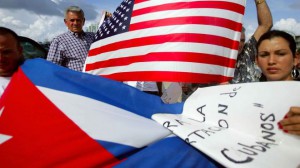 Now is the time to prepare the Marshall Plan to execute in Cuba.
Now is the time to prepare the Marshall Plan to execute in Cuba. (CNN) — Thanks to a $250 million transformation, Royal Caribbean’s once-sleepy private island retreat in the Bahamas is offering eye-opening
(CNN) — Thanks to a $250 million transformation, Royal Caribbean’s once-sleepy private island retreat in the Bahamas is offering eye-opening  In fact, in a
In fact, in a 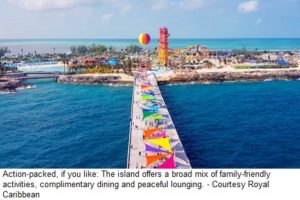




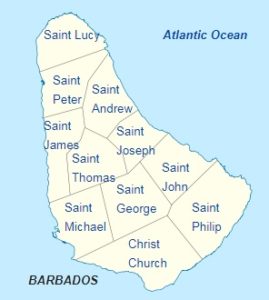 “Come home Bajans …”
“Come home Bajans …” Ms. Mottley made the appeal tonight at the launch of We Gatherin’ Barbados 2020 in Parliament’s Courtyard before a large crowd, including those “watch parties” of Barbadians and friends in Geneva, New York, Beijing, Canada, Washington and Australia.
Ms. Mottley made the appeal tonight at the launch of We Gatherin’ Barbados 2020 in Parliament’s Courtyard before a large crowd, including those “watch parties” of Barbadians and friends in Geneva, New York, Beijing, Canada, Washington and Australia.
 Notwithstanding indigenous Amerindian cultures, the Caribbean represents the oldest civilizations in the New World. Columbus made his New World discovery here in the Caribbean:
Notwithstanding indigenous Amerindian cultures, the Caribbean represents the oldest civilizations in the New World. Columbus made his New World discovery here in the Caribbean: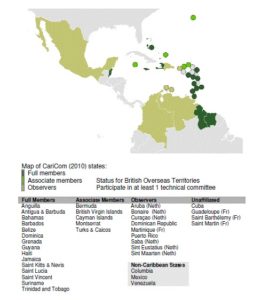

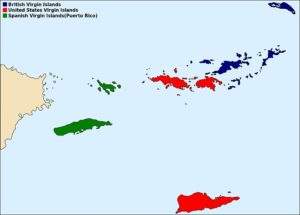
 … it is the assessment of this commentary that Independence is so overrated; rather than the independence, the call is for interdependence. A model of this desired interdependence is the inter-state cooperation in the European Union (EU).
… it is the assessment of this commentary that Independence is so overrated; rather than the independence, the call is for interdependence. A model of this desired interdependence is the inter-state cooperation in the European Union (EU). While we need to look forward, we also need to look backwards. This was the assertion of the 2013 book Go Lean … Caribbean, which advocates for the installation and deployment of a regional power grid heavily dependent on wind energy. The book states (Page 113):
While we need to look forward, we also need to look backwards. This was the assertion of the 2013 book Go Lean … Caribbean, which advocates for the installation and deployment of a regional power grid heavily dependent on wind energy. The book states (Page 113): The energy minister, speaking Friday at Wigton Windfarm’s Initial Public Offering (IPO) investor briefing at the Montego Bay Convention Centre in Rose Hall, St. James, said the production of clean energy from the facility has enabled the country to avoid the purchase of 800,000 barrels of oil, and the emission of one million tons of carbon dioxide, thereby reducing the country’s carbon footprint, the Jamaica Gleaner reported.
The energy minister, speaking Friday at Wigton Windfarm’s Initial Public Offering (IPO) investor briefing at the Montego Bay Convention Centre in Rose Hall, St. James, said the production of clean energy from the facility has enabled the country to avoid the purchase of 800,000 barrels of oil, and the emission of one million tons of carbon dioxide, thereby reducing the country’s carbon footprint, the Jamaica Gleaner reported.
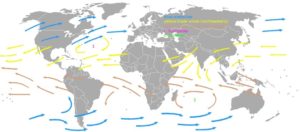
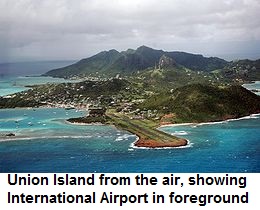

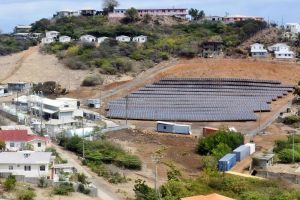
 “In the near future, the solar PV farm will generate electricity on the island during the day to supply to the grid. We anticipate that on sunny days, the solar plant will generate excess electricity than is required to supply the average daytime load on the island. The excess electricity will be stored in batteries. The expected annual energy output is approximately 32 per cent of the electricity generated in Union Island in 2018.
“In the near future, the solar PV farm will generate electricity on the island during the day to supply to the grid. We anticipate that on sunny days, the solar plant will generate excess electricity than is required to supply the average daytime load on the island. The excess electricity will be stored in batteries. The expected annual energy output is approximately 32 per cent of the electricity generated in Union Island in 2018.